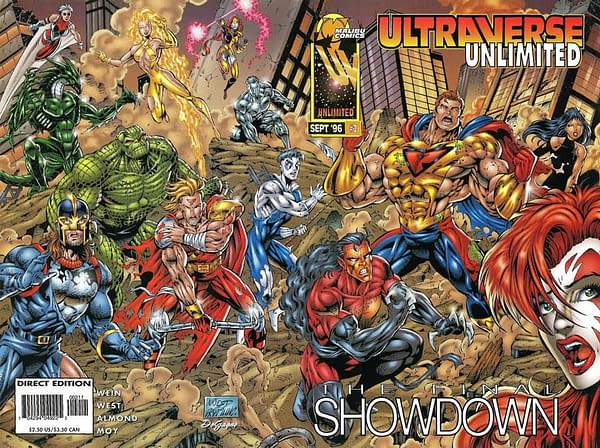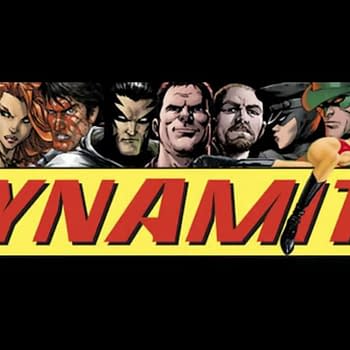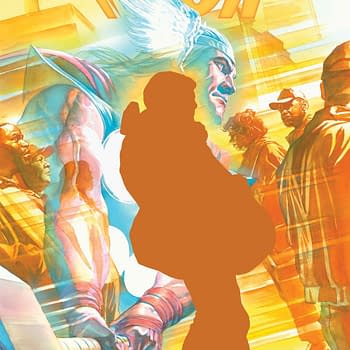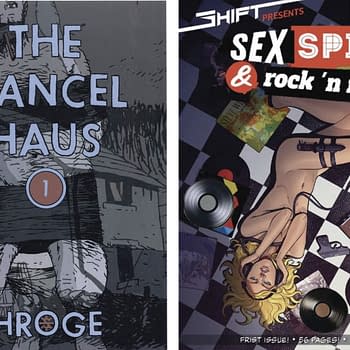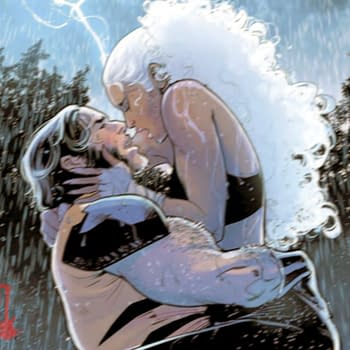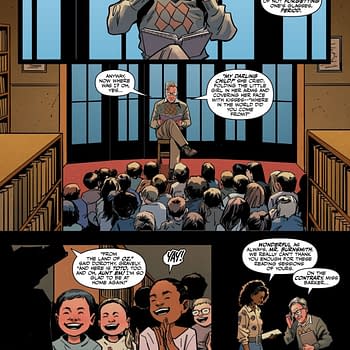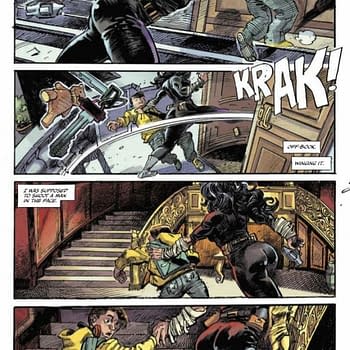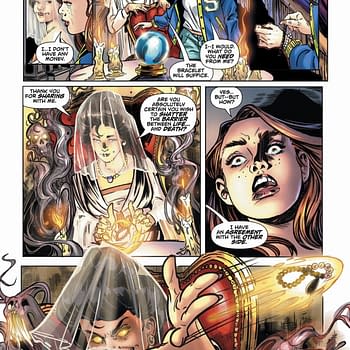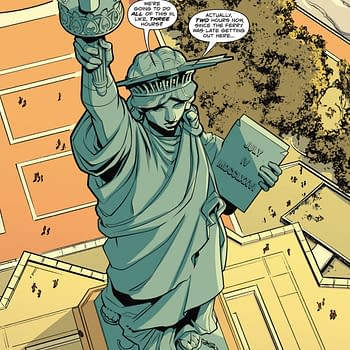Posted in: Comics, Marvel Comics | Tagged: james hudnall, malibu, marvel, Tom Mason, ultraverse
Why Did Marvel Really Buy Ultraverse & Why Won't They Publish It Now?
Last week I ran a piece on a very rare and possibly snuck-through mention of the Ultraverse in a Marvel Unlimited comic book.
Last week I ran a piece on a very rare and possibly snuck-through mention of the Ultraverse in a Marvel Unlimited comic book. I also repeated the old story about Marvel originally buying Malibu and the Ultraverse for their colouring department, and that Marvel's reluctance to use the Ultraverse in any fashion was down. But maybe not. When the late James Hudnall said as much in an article referred to in the Comic Beat in 2013, the comments saw fellow Malibu creator Tom Mason tell a different story in the comments.
Tom Mason: Marvel never bought Malibu for its coloring department. That was never true. Marvel bought Malibu for only one reason: to keep it away from DC which had been negotiating to buy the company since April/May 1994. (Marvel actively and repeatedly tried to shut down the coloring department post-acquisition and it was only saved through the intervention of Mark Gruenwald and the guy who ran the coloring department Mike Giles.)
As far as I know, there are no creator contract issues with the Founders that would prevent the revival of the Ultraverse. I know that phantom issue gets tossed out there a lot, but both Tom Brevoort and Joe Quesada have stated that it's not a creator contract issue that prevents Marvel from reviving it. And since I'm one of the people who has an Ultraverse contract and an interest in multiple characters, I would know. Also, Marvel owns the Ultraverse outright, so they don't need anyone's permission. (The Founders still keep in touch and we've all talked about it over the years – there's nothing legal going on between the Founders and Marvel.)
Johanna is correct that the Ultraverse contracts for the Founders do have participation %. However, the Founders do not have an ownership stake, do not share in any "profits" (however that may be defined), and have no control over the properties. (Just as if they had created a character for the DCU.) Character Interest Agreements for the Ultraverse simply state that writers and artists who created specific characters will receive a very small percentage of the money that comes in based on their media exploitation. The agreements were based on standard terms at DC at the time for creators who created a character for the DCU. And those terms are in perpetuity, so if for some reason there's a Sludge movie, Steve Gerber's estate receives a check. But, those percentages are not onerous and not out of line with what DC was offering at the time.
Brevoort has stated in the past that the reason Marvel can't discuss the Ultraverse properties is because there's an NDA in place with certain parties. If you read the original press release where Scott Rosenberg left Marvel and announced the formation of Platinum Studios back in 1997, you'll find this nugget: "Rosenberg also has an ongoing producer deal for all Malibu Comics properties." So that NDA just might relate to that and probably has more to do with the reason why the Ultraverse properties have languished.
That link has been deep-holed, but Scott Rosenberg has been a controversial figure over the years. Starting a mail-order comics company when he was thirteen, he ran comics distributor Sunrise Distribution, which saw Rosenberg publish and distribute his own comics as Eternity and Malibu Comics, before bankruptcy hit the distributor sidem, which took down other publishers, while Malibu Comics continued, published the Men in Black and would launch Image Comics, before creating their own Ultraverse when Image Comics left. Malibu was sold to Marvel in 1994, making Rosenberg the senior executive vice president at Marvel. He left to start Platinum Studios in 1997, including the infamous publication and selling of Cowboys & Aliens. He also did a deal with Rob Liefeld that saw him own half of Liefeld's creations, including Youngblood and Supreme, which he then sold to Andrew Rev. Clearly something happened at Marvel which sees the publisher not wanting to pay him anything or work with him again.
Gary Guzzo replied "I have to totally agree with Tom on the reason for Marvel's purchase of Malibu. I was in the meetings where this was kicked around and the bottom line was that the market share of Malibu, had it been added to the market share of DC, would have put Marvel into the Number Two position….at a point where the ONLY concern of the uptown owners was the stock prices. A real shame, since Dave Olbrich and I tried to do a crossover in the early Malibu Ultraverse days and were actually excited over the prospect of joining forces. Alas, it did not go that way…."
James Hudnall concluded "Interesting. Good to know but also very frustrating since it means they didn't want to do anything with Scott which means as long as he lives nothing's going to happen. Unless Disney decides they REALLY want to do something with the Ultraverse. But considering how many properties Marvel has, that's unlikely."
That was ten years ago. And Thor Ragnarok aside, nothing has changed since.


